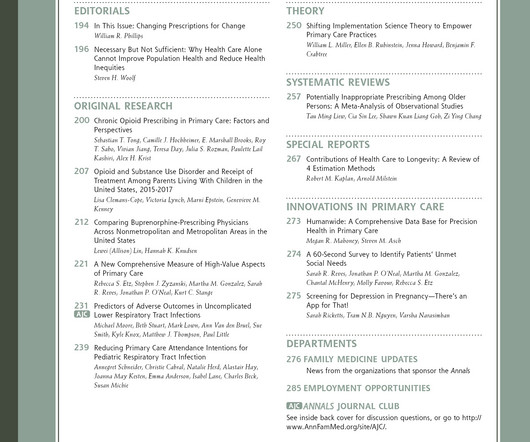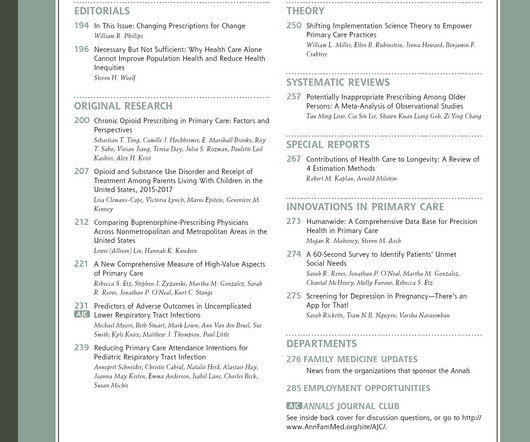Intersections Between Gender, Race/Ethnicity and Marital Status Associations with Depression Symptoms [Behavioral, psychosocial, and mental illness]
Annals of Family Medicine
NOVEMBER 20, 2024
Study Design and Analysis: This study utilized survey-based methodology to estimate adjusted odds ratios (OR) and interaction effects using ordinal generalized linear model. Setting or Dataset: Data were derived from a survey dataset obtained from NHANES, specifically cross-sectional data from the 2013 to 2018 waves.


















Let's personalize your content